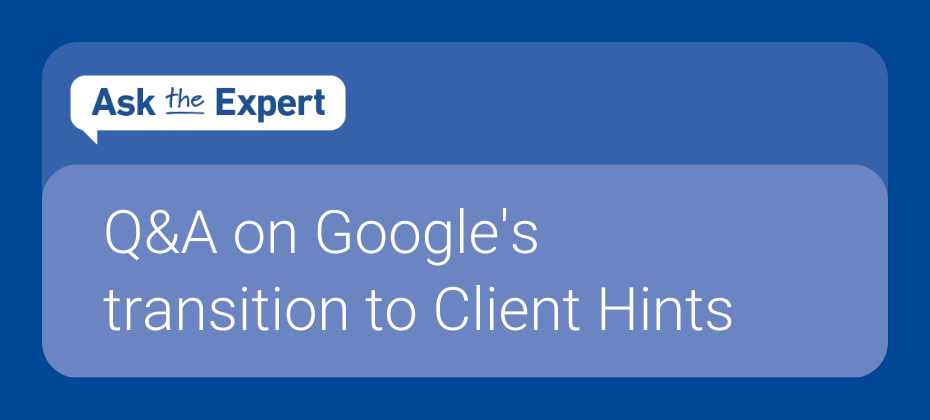
At this year’s Shoptalk, one thing was crystal clear: Retailers are no longer just competing on price or product—they’re competing on experience. And in that race, customer expectations are not just the starting line—they’re the finish line, too.
Over three days of discussions, demos, and side conversations, Shoptalk 2025 delivered a fresh look at how brands and advertisers are adapting to an increasingly blended retail environment. The show spotlighted not just what’s new in retail media and AdTech—but how the industry is rethinking the entire shopper journey.
What we heard again and again on the ground was this: there is no one-size-fits-all playbook anymore. Every retailer is navigating their own unique mix of identity, data, tech, and consumer needs. The winners will be those who stay nimble while staying connected to what customers actually want.
Experience is everything
Across sessions and show floor chats, the core message was this: customers expect more—and retailers must rise to meet that moment. Whether it’s a personalized in-store interaction or a seamless connected TV (CTV) ad experience, people want value, inspiration, and storytelling wherever they shop. That means digital and physical channels must work together effortlessly.
Retailers aren’t just “digitizing” the in-store experience anymore—they’re rethinking how to make the entire shopping journey feel easy, consistent, and enjoyable. This shift isn’t just about touchpoints. It’s about changing the way retailers think about the customer experience.
Loyalty isn’t a program, it’s every interaction
Loyalty emerged as a major theme—one that goes well beyond points and perks. Speakers from Wayfair, DSW, and Lowe’s emphasized that every customer interaction, not just formal programs, should be viewed as an opportunity to build emotional loyalty. Sarah Crockett, CMO of DSW, shared that emotional tactics resonate more deeply than transactional rewards—echoing a broader shift toward customer-centric, experience-driven engagement.
“Loyalty today isn’t just about perks. It’s about trust, connection, and knowing your customer on a deeper level. Every interaction is a chance to build that relationship.”
Sam Zahedi, Sr. Enterprise Partnerships Manager
Retail media gets real
Retail media networks (RMNs) took center stage, but the tone is changing. With so many players flooding the space, retailers and advertisers alike are asking tougher questions: How do you stand out? How do you prove value? And perhaps most critically—how do you build trust?
Standardization came up in several sessions, but as Harvey Ma from Sam’s Club MAP pointed out, standardization alone won’t fix what’s been lost: foundational trust and transparency. Advertisers want more than impressions—they want insights, outcomes, and measurement they can count on.
“There’s no one playbook—nor should there be. Every retailer, every RMN, and every customer is different. Success comes from building strategies as unique as the audiences they serve.”
Anne Passon, Sr. Director, Sales, Retail
Many brands came to our team asking how Experian can help extend their audiences into new environments like social and CTV. Here’s how we do it:
- We work with our RMN partners to take their organized, clean, complete, and highly usable customer records and expand them to include other digital identifiers. By adding digital IDs such as hashed emails (HEMs), mobile ad IDs (MAIDs), CTV IDs, and Universal IDs like Unified I.D. 2.0 (UID2) or ID5, we ensure that the retailer’s entire customer base can be reached.
- On their own, RMNs only know the digital identity of a portion of their customer base. With Experian’s help, they can add digital IDs to their entire customer base.
- As a result, marketers can reach all of an RMN’s customers, including those whose identities were previously unknown. They can reach these customers both onsite and offsite, thanks to the array of addressable IDs we provide. This increase in addressability leads to higher revenue for the RMN.
Moving at the speed of people
One of the most thought-provoking moments came from Nikki Laughlin from McClatchy Media during a Brand Innovators session. She asked a simple but powerful question: How can we move at the speed of people if we’re always looking backward at data?
It’s a challenge we’re hearing more often—marketers want to be proactive, not just reactive. That requires faster insights, cleaner connections between signals, and a shift from static audiences to living, evolving ones.
Experian’s identity and data solutions aren’t just about better targeting—they’re about helping brands activate smarter, faster, and with more confidence across the full media ecosystem.
A marketplace of possibilities
The best part of Shoptalk? The spontaneous moments. The side conversations where ideas turned into opportunities. We had several discussions that signaled new partnerships on the horizon—some with current clients, others brand new. What united them was a desire to co-create: to build something more tailored, more agile, more customer-first.
Of course, there were also shared challenges. Retailers are navigating how to stay customer-centric while grappling with complex, sometimes controversial tech—from AI to influencers to evolving data privacy norms.
But if there was one consistent thread, it was this: retailers are hungry for clarity and collaboration.
Forget the playbook, follow the customer
Shoptalk 2025 reminded us that while tech and trends come and go, the most successful retail strategies still start with one thing: knowing your customer. That’s what fuels smarter activation, stronger measurement, and more meaningful experiences—whether online, in-store, or across emerging media channels.
If you’re rethinking your retail strategy or want to explore how Experian can support your goals across identity, retail media, or CTV, let’s talk.
Let’s connect and explore what’s possible
Latest posts

Super Users are a subset of customers who can have an influential impact on ROI. Find out how to target them for a successful marketing targeting strategy.

As browsers phase out support for third-party cookies, contextual advertising offers an innovative solution to reach your target audience.

Google is replacing User-Agents with Client Hints across their Chromium browsers. Learn what this change means and how it impacts OpenRTB in our Q&A.